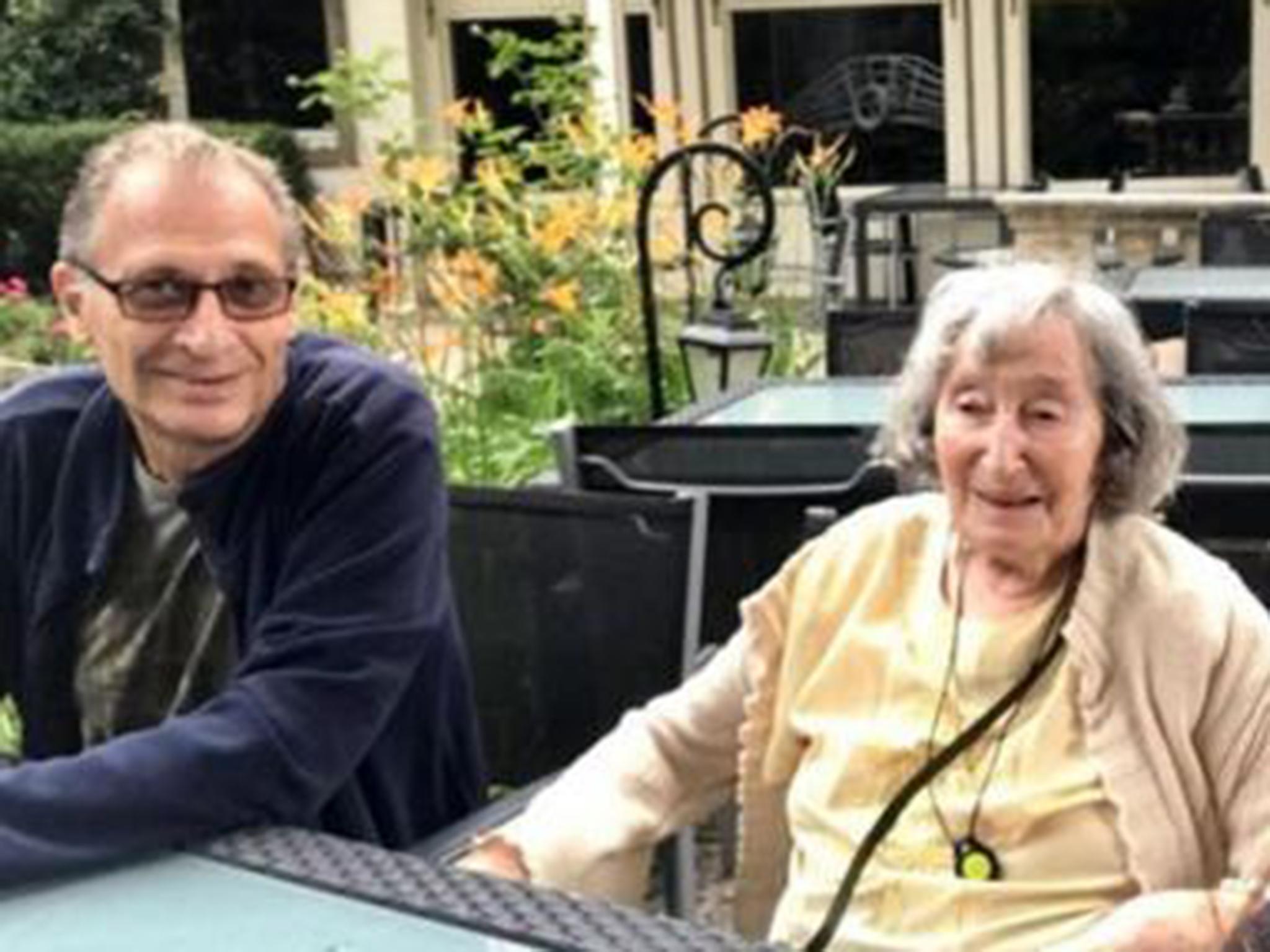Thousands gather in Paris to honour Holocaust survivor killed in brutal ‘antisemitic’ murder
Crowds march in silence waving French flags and wearing badges with victim's face

Your support helps us to tell the story
From reproductive rights to climate change to Big Tech, The Independent is on the ground when the story is developing. Whether it's investigating the financials of Elon Musk's pro-Trump PAC or producing our latest documentary, 'The A Word', which shines a light on the American women fighting for reproductive rights, we know how important it is to parse out the facts from the messaging.
At such a critical moment in US history, we need reporters on the ground. Your donation allows us to keep sending journalists to speak to both sides of the story.
The Independent is trusted by Americans across the entire political spectrum. And unlike many other quality news outlets, we choose not to lock Americans out of our reporting and analysis with paywalls. We believe quality journalism should be available to everyone, paid for by those who can afford it.
Your support makes all the difference.Every morning, in a part of the 11th Arrondissement of Paris that has not yet been gentrified, Mireille Knoll would sit at home watching television as she waited for her personal care aide.
The aide, Leila Dessante, would clean the small second-floor apartment, cook lunch and keep company with Ms Knoll, an 85-year-old grandmother and Holocaust survivor. “She would take my face in between her hands and always ask, ‘how are you doing today, sweetheart?’” Ms Dessante recalled on Wednesday.
Ms Knoll’s gentle routine was brutally interrupted last week when she was killed in her apartment. The attack shocked her neighbours, France’s Jewish community and the country as a whole. Two suspects, men in their twenties, have been placed under formal investigation on charges of murder with an antisemitic motive.

The killing has raised questions about a persistent strain of antisemitism in France, “an antisemitism that remains, that transforms, that reappears, that mutates,” according to Édouard Philippe, the prime minister.
“She survived the Holocaust in the last century, I think she had a happy life and yet she was killed at home in 2018, frail and defenceless,” Ms Dessante said as she was leaving Ms Knoll’s apartment building after laying flowers on the doorstep. “What world are we living in?”
Thousands gathered in Paris on Wednesday to honour Ms Knoll, marching from the Place de la Nation, on the eastern side of the capital, to her apartment building, a nondescript housing block where mourners had placed candles and flowers on the railings.
Many marched in silence, waving French flags or wearing badges with a picture of Ms Knoll. Samuel Cohen, 74, who was at the march with his wife, Léa, 70, was one of several who carried a sign that read, “In France, we kill grandmothers because they’re Jewish”.
“It would be a little exaggerated to say that we are not safe in France today,” Mr Cohen said. “Yet it’s true that we are worried, that it’s become hard to practice one’s faith in some areas and that we’ve reached a new degree of antisemitism with this murder.”
Government officials attended the march, as did representatives of France’s main political parties, including the head of the far-right National Front, Marine Le Pen. She has been trying to shed her party’s racist and antisemitic past, but was booed at the march.
In 2015, she kicked Jean-Marie Le Pen – her father and a founder of the National Front – out of the party for reiterating comments he had made previously that dismissed the Nazi gas chambers as a “detail of World War II history.”
The Representative Council of Jewish Institutions in France (CRIF), one of the largest Jewish advocacy groups in France, said ahead of the march that neither the far-left nor the far-right was welcome to join, arguing that antisemites were “overrepresented” on both extremes of the political spectrum.
But Daniel Knoll, one of Mr Knoll’s two sons, said on Wednesday that everyone could come.
“The CRIF is playing politics and I am opening my heart,” Mr Knoll said on the French news channel BFM TV. “I open my heart to everybody, everyone who has a mother – which means everybody.”
“It’s unbearable, today in France, to know that someone can die like this, in such an atrocious way,” he said.
Mireille Knoll was stabbed 11 times and her body was found partly burned after her attackers tried to set her apartment on fire. One suspect was a neighbour who had often been hosted by Mr Knoll, while the other was a homeless friend of his.
An official close to the investigation, who was not authorised to speak publicly about the case, said that the friend had told investigators he had heard Mr Knoll’s neighbour say “God is great” in Arabic during the killing. But the official said the two suspects had given conflicting statements to police.
The French authorities have suggested that Mr Knoll might have been the target of a theft that escalated, for reasons that remain unclear.
But they have also characterised the attack as a worrying sign of antisemitism in France, which has been shaken by several recent episodes, including the killing last year of another elderly Jewish woman, Sarah Halimi, which the authorities were much slower to characterise as antisemitic.
Gérard Collomb, the interior minister, said on Tuesday that one of the suspects in Ms Knoll’s killing had told the other, “she is a Jew, she must have money”.
“These are the stereotypes that are increasingly common in our society and that we must fight against,” Mr Collomb told lawmakers in the National Assembly.
Ms Knoll was a child in Paris when, in the summer of 1942, the French police cooperating with the Germans rounded up thousands of the city’s Jews, most of whom were later murdered at Auschwitz.
President Emmanuel Macron referred to Ms Knoll’s killing at a ceremony on Wednesday morning that paid tribute to lieutenant colonel Arnaud Beltrame and to the other victims of a terrorist attack in southern France last week.
France “is confronted today with a barbaric obscurantism, with the only goal of eliminating our liberties and our solidarities,” Mr Macron said, drawing a parallel between the “terrorist in Trèbes” and Ms Knoll’s killer, “who assassinated an innocent and vulnerable woman because she was Jewish”.
Mr Macron attended Ms Knoll’s funeral later on Wednesday, according to the Élysée Palace.
In an interview, Meyer Habib, a Franco-Israeli lawmaker in the National Assembly, said that “in the same day, I have a ceremony for a hero who gave his life to save a hostage, then I attend the funeral of an 85-year-old lady who was killed because she was a Jew and then I’m going to honour her memory at a march.”
“That’s my schedule today and I don’t find it normal,” he said.
The New York Times